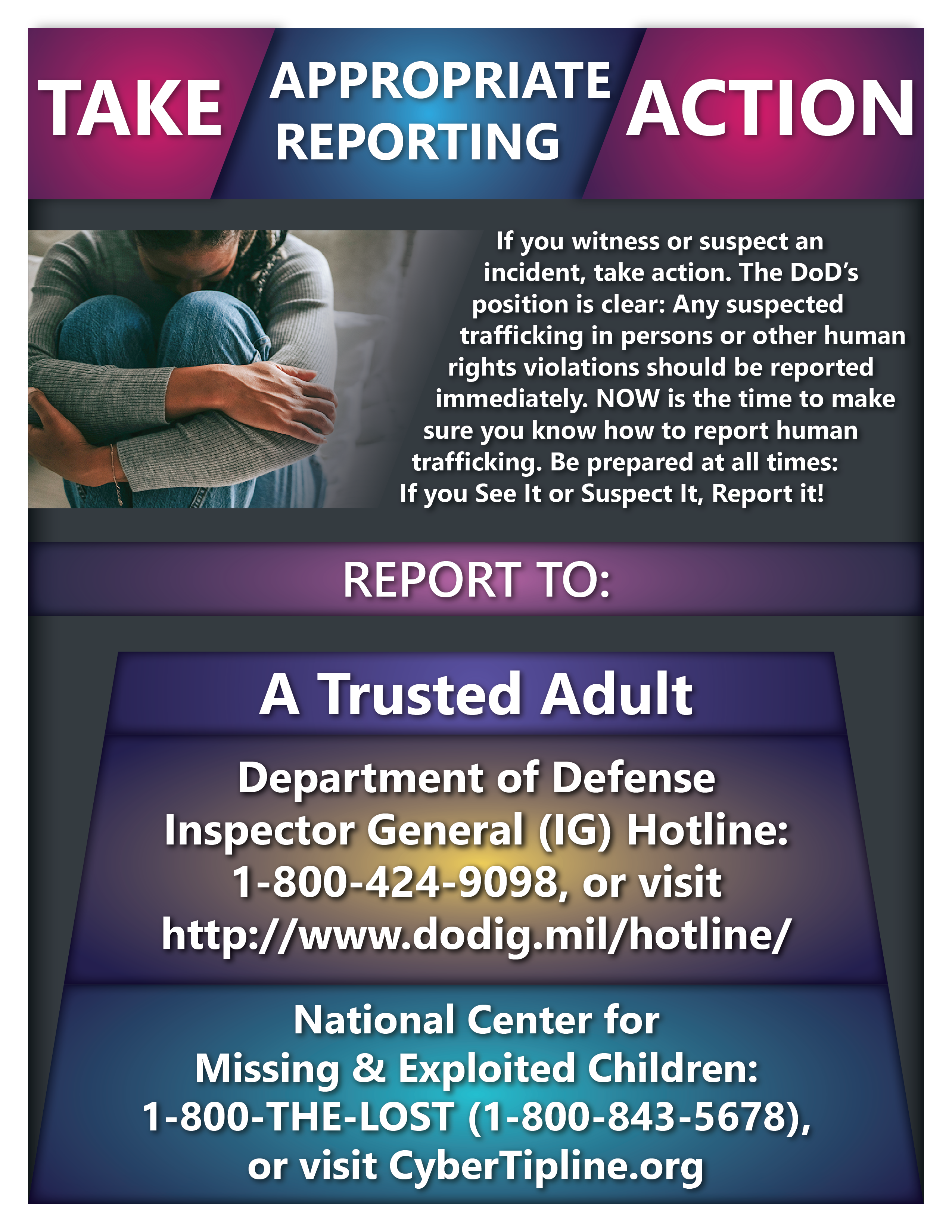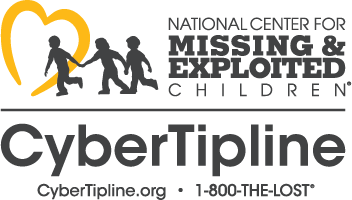Combating Trafficking in Persons at School and in the Community
Combating Trafficking in Persons at School and in the Community
Play the video to hear a message from Austin "LaDon" Morris, 1Lt, USAF.
Hello, I'm First Lieutenant Austin Morris, I'm a Contracting Officer in the United States Airforce, and I wanted to share some information with you to hopefully help you understand your role in all of this talk about human trafficking.
There are 1.2 million military connected children of all ages worldwide. As a military connected student, you have many strengths that make you unique among your peers. You’re provided with an intense educational experience and the opportunity to experience and better understand diverse perspectives. You’re trained to be a problem solver, and in some cases, you also receive leadership training. You’re taught the ability to bounce back and keep going even in adverse situations. In short, you’re taught to be resilient. You have strength because you’re not only mission-driven and focused on accomplishing your goals, but because you’re also taught to be service-oriented. As a military connected student, you’re in a group that volunteers more frequently than any other student demographic.
Unfortunately, in performance of our duties at home and around the world, U.S. forces and their families may encounter terrible crimes and serious human rights violations such as sex trafficking, forced labor, slavery, kidnapping, torture, and child soldiers. So, as for myself, and for my fellow military and civilian forces, we want to take this opportunity to call on all of the skills and strengths that you already have, along with the skills that you develop throughout this course, in order to help us combat the problem of human trafficking. The information you learn here is valuable in our efforts in human trafficking assistance and prevention. With it, you can help us to better recognize the signs and indicators of human trafficking. It’s vital that you know how to respond if you or a friend may be in danger of trafficking, and how to report trafficking if you see it or suspect it.
Be sure to download the infographic and keep it with you so you can easily access the information, should you ever need it!

At any time during this training, call the National Center for Missing & Exploited Children Hotline at 1-800-THE-LOST (1-800-843-5678) to speak to someone about anything in this training that concerns you.

To report an incident online, fill out a report here: CyberTipline
